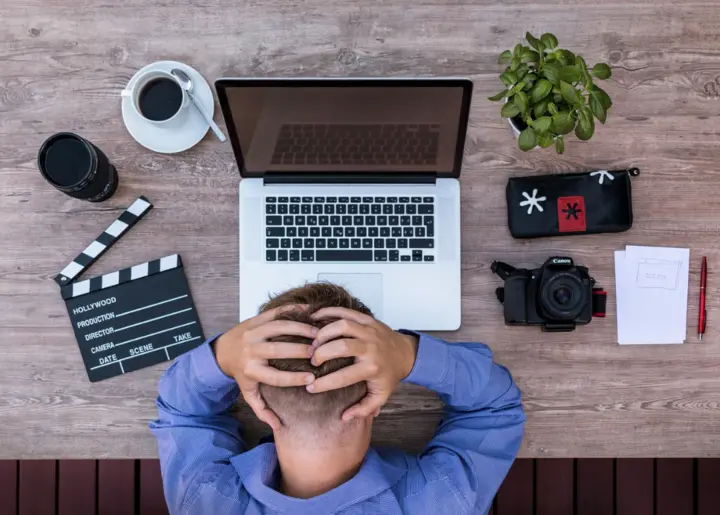Achieve more in less time: 5 simple strategies to increase productivity
Wouldn't it be great to come home from work every day feeling like you've accomplished everything you wanted? Often we start our days with energy and enthusiasm, then we go off track and make only intermittent progress. This can make us feel frustrated, and it can give us a sense that we have little control over our lives. Fortunately, there are ways we can help ourselves stay on track and get more done the right things.
Show key points
- Begin each day with three clear intentions to focus your energy and make better decisions about your time.
- Identify and eliminate or minimize distractions to improve your workflow and stay aligned with your goals.
- Understand and embrace your personal work style—whether you're a planner or prefer a freer approach—to optimize your productivity.
- ADVERTISEMENT
- Be willing to challenge long-standing habits or outdated rules in order to discover more effective ways of working.
- Taking short, intentional breaks throughout the day helps prevent burnout and renew focus on your priorities.
- Productivity should be measured by meaningful progress, not by simply completing more tasks.
- Using your intentions as a daily guide can quickly get you back on track when interruptions occur.
Here are 5 ways to boost your productivity so you can set yourself up for success every day.
Be dependent on your intentions

Most of us face our days overwhelmed by to-do lists and a million thoughts spinning in our heads. To take charge of all these tasks and ideas, try to summarize them down to three intentions. High-level intentions help you make decisions about which of the tasks you should do first, and whether you should perform all your tasks at all. Once you've decided on your three intentions, ask yourself the following:
Recommend
1. What should I think and do today that will allow me to feel productive based on my intentions?
2. Does the way I spend my time bring me closer to my intentions or farther away from them?
3. How can I better organize my day around my intentions?
By limiting yourself to three intentions, and using them to guide what you do throughout your day, you can stay productive and quickly get back on track when interruptions appear.
Avoid distractions

Distractions are one of the biggest things that prevent people from not only getting things done but also from feeling productive. Many of us are overloaded by the 24-hour news cycle bombardment, endless notifications on our devices, and the feeling of having to keep up with a wide range of things, whether they affect us or not. While some distractions like emails, meetings, and work-related interactions can't be addressed, the first place to start eliminating distractions is to take a closer look at what we allow distractions. To start reining in distractions, ask yourself the following:
1. What distracts me the most? Is it to follow something online? Is it interaction with others?
2. What do I gain from allowing every distraction to exist in my life?
3. How do my values align with my distractions? How does every distraction reward me?
4. How do distractions affect my workflow?
5. How can I eliminate or minimize distractions so that I can work towards achieving my intentions for the day and feel more productive?
A great way to think quickly about distractions is this three-step process: the value of thinking, the flow of thinking, and the finished thinking. If distraction ultimately has little or no value, get rid of it so you can keep your work going and focus on finishing what you started.
Work with – not against – your style of work

Knowing how to work best – and working that way rather than against it – is another key to making positive progress and feeling good throughout your day. Planners like to keep things organized, remove things from lists, often work better at time intervals, and generally don't like surprising things. Free writers are freer to flow, and they like to move from one task to another. They don't care much about the structure and enjoy the variety that comes with no "fully planned" things. Sometimes freelance writers also work best when they have a deadline hanging over their heads and feel pressured to get something done. Unlike planners, they need this pressure to motivate them to act.
Knowing if you're a planner or a liberator (or somewhere in between) can help you better understand how to work. Knowing your work style can also help you understand how to better interact with those around you, and why some people may not understand why you work the way you do. Knowing your work style can also give you insight into how others work in your industry and your company as well. Regardless of whether you're a planner or a liberator, you can be productive by working your own style using intentions to guide you and intentionally reduce distractions.
Get rid of the rules

One of the best ways to change your thinking about productivity is to get rid of the rules. Many times people do things the same way forever – without questioning them, not rethinking them – believing that if it's not broken, don't fix it. While this works part-time, staying in old patterns of thought and action can eventually close your mind to new opportunities or better/more effective ways of doing things.
Both planners and liberators can resist abandoning the rules because it goes against the best way of doing their job. Planners may reject a less structured and freer approach, while liberals may not appreciate overly organized ways of dealing with the same problem. The goal of abandoning the rules is not to be a rebel who goes against the current, but to look at what needs to be done and understand that there can be several paths to achieving the ultimate goal, and that each path is valid.
Take breaks

Taking breaks may seem counter-intuitive to be productive, but it's essential to conserve your energy and recharge your mind. If possible, try to stay away from your desk (and your tech tools) even if it's only for five minutes. Clearing your mind will help you return to your intentions with new eyes – and sometimes with new ideas. Taking some time throughout the day to step back and give yourself a mental break can help you stay active so you can maintain your momentum.
Productivity isn't about the number of things you cross off the list, it's about the feelings you get when you make something valuable in an effective way. By staying focused on your day through intentions, reducing distractions, knowing how to work better, and taking breaks so you can look at things with fresh eyes, you can help yourself accomplish more tasks and feel your best while doing so.








